At the 22nd Millennium Docs Against Gravity Film Festival, WWF Poland—longtime partner of the festival—will present a special award on the occasion of its 25th anniversary in Poland. The award will be granted to the Indigenous people of the Wet’suwet’en Nation, whose heroic defense of their land against the incursion of fossil fuel corporations and the Canadian government is portrayed in the film Yintah.
"Yintah" is also competing for the Green Warsaw Award for the best environmentally-themed film, sponsored by the City of Warsaw.
The official award ceremony will take place on the festival’s opening night—Friday, May 9 at 8:30 PM in Kinoteka—immediately following the Polish premiere of Yintah. Tickets will be available starting April 24 at mdag.pland at Kinoteka’s box office and website.
Yintah (dir. Jennifer Wickham, Brenda Michell, Michael Toledano) addresses crucial issues around Indigenous rights and their struggle to protect ancestral lands. It’s a moving story about resilience, identity, and a deep connection to nature. Following the film’s premiere, we invite audiences to join a discussion exploring the key themes presented. How do Indigenous communities contribute to environmental protection? How can we support their sovereignty efforts? Do today’s legal and political systems adequately recognize their contributions? These questions will be addressed by WWF Poland’s international affairs expert Anna Sosnowska, and the festival’s special guest—Chief Woos of the Grizzly House (C’asyikh), one of three Gidimt’en clan houses of the Wet’suwet’en Nation. The discussion will be moderated by Agnieszka Lichnerowicz (TOK FM).
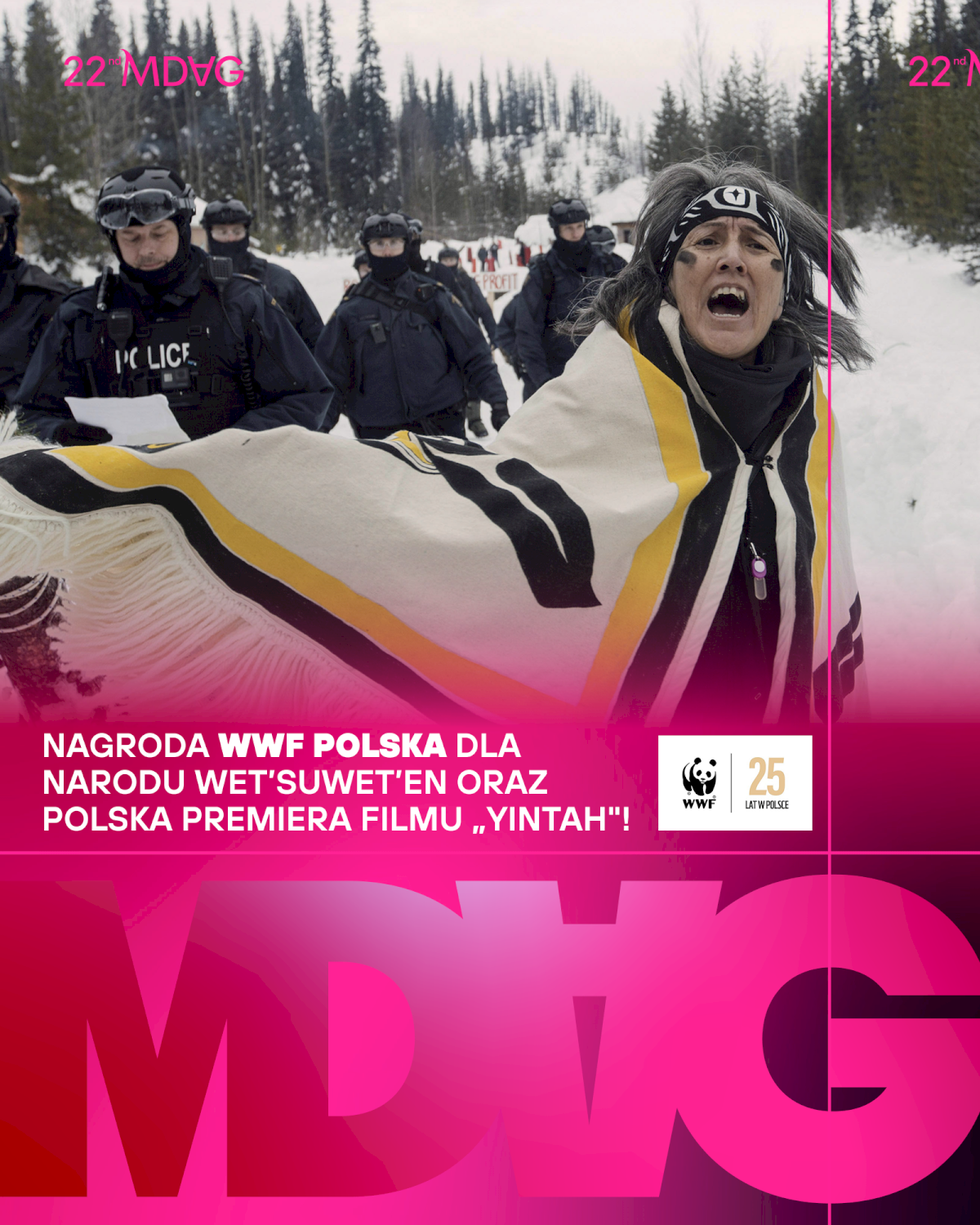
For thousands of years, Indigenous communities have been guardians of the natural world, defending the land they live on—lands often referred to as “temples of wilderness.” Indigenous territories cover an estimated 22% of the Earth’s surface and harbor around 80% of global biodiversity. Traditional knowledge—spanning agricultural techniques, hunting practices, and water management—helps maintain ecological balance in these regions. The right to access land, ecosystems, and a clean environment, while respecting traditions and values, is a fundamental human right. Today, those rights, lands, and traditions are under threat. What are the implications for all of us?
“Indigenous rights are a key element of effective nature conservation. Indigenous peoples are among the most important guardians of natural resources, and their ecological knowledge and traditional practices are fundamental to sustainable management of critical ecosystems. Globally, WWF is committed to recognizing Indigenous peoples’ rights to self-determination, land, and natural resources, and to supporting their role in shaping environmental decisions,” says Jakub Milczarek, Director of Nature Conservation at WWF Poland.
Films Competing for the Green Warsaw Award
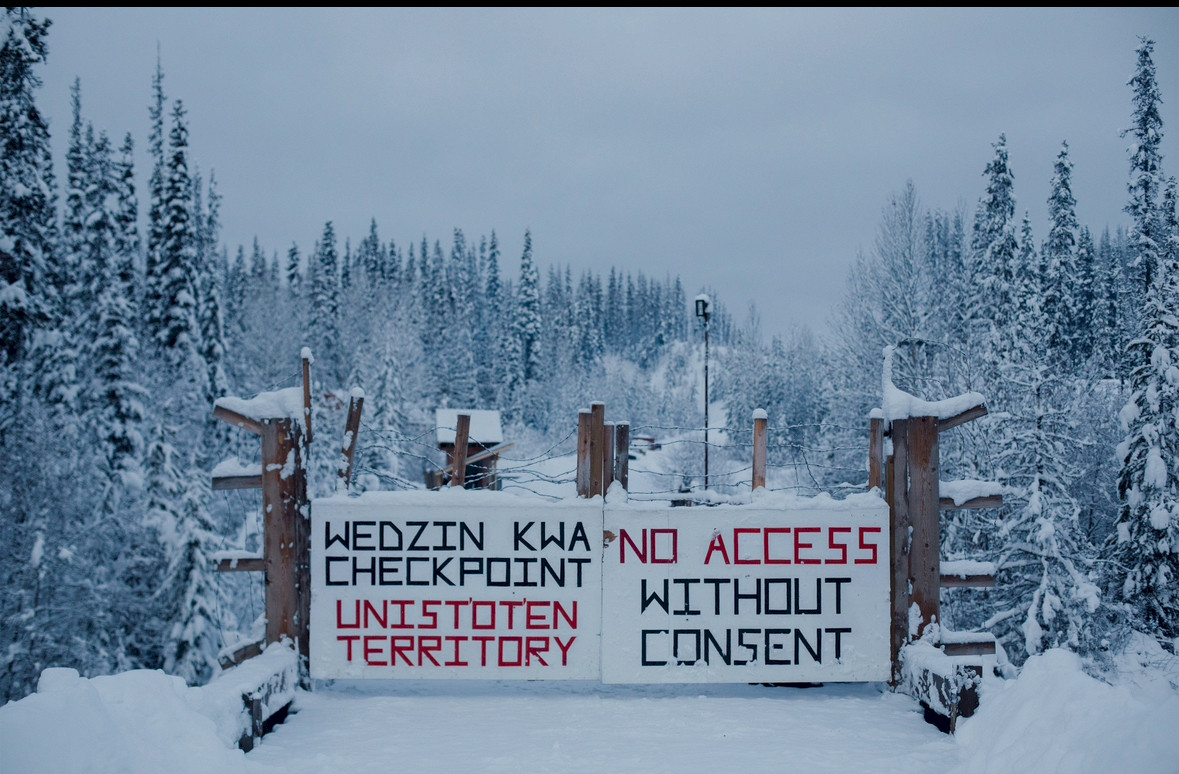
Since its inception, the Millennium Docs Against Gravity festival has placed ecology at the heart of its program, sparking wide-ranging discussion. Filmmakers from around the world share stories not only about the threats of climate change, but also the solutions. In partnership with the City of Warsaw, the annual Green Warsaw Award honors the best environmentally-themed film. The competition is accompanied by a film section titled Climate for Change.
At the 22nd MDAG, eleven films from across the globe will compete for the award, exploring themes like biodiversity, climate change, human-animal relations, and the consequences of human-induced environmental destruction. Yintah is one of the competing titles—but what are the others?
 Film still from the film "Dust to Dust"
Film still from the film "Dust to Dust"
Climate change is one of the most urgent issues of our time. That’s why stories of charismatic individuals working to save our planet are so important. One such figure is Yuima Nakazato—a Japanese designer and key advocate of ethical fashion production. The film Dust to Dust (dir. Kosai Sekine) follows Nakazato as he merges his unique artistic vision with sustainable technologies, refusing to buy into the lies of greenwashing.
From a completely different angle, investigative journalist Nathan Halverson spent seven years uncovering the hidden power struggles over the world’s most vital resources: arable land and water. In The Grab (dir. Gabriela Cowperthwaite), climate shifts disrupt global balances of power, as countries like China, the U.S., and Russia secure their futures at the expense of others. The film reveals the dark underbelly of this global conflict.
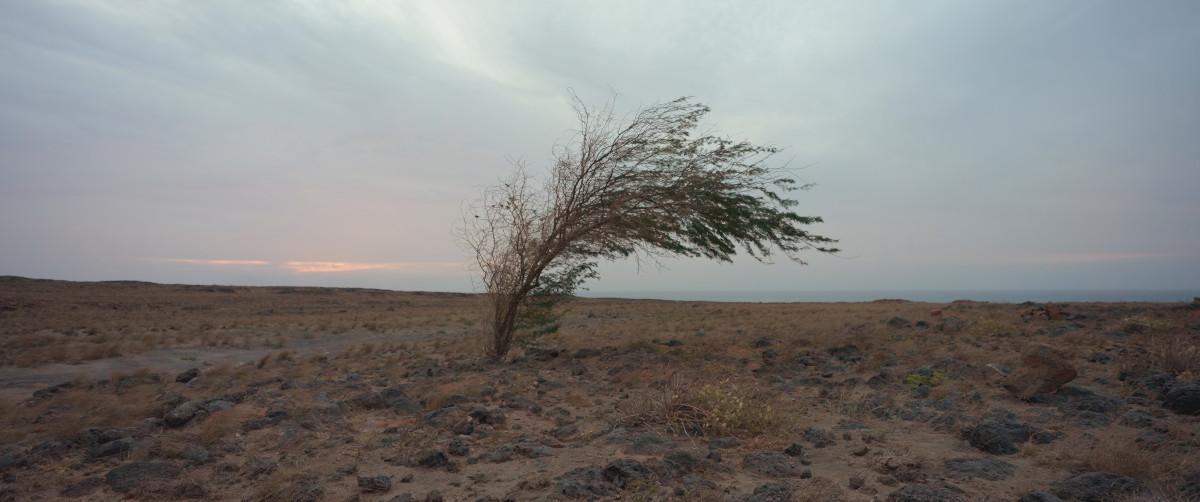 Film still from the film "Coriolis Effect "
Film still from the film "Coriolis Effect "
Several entries also portray nature’s growing destructive power under climate stress. In southern Galicia, Spain, wildfires are on the rise. Wild horses once naturally reduced the flammable underbrush—but they are vanishing. Only on Earth (dir. Robin Petré) is a visually stunning journey into the region during the hottest summer on record, where wildfires rage for days. The film captures the fragile balance between humans and nature.
Another film exploring elemental forces is Coriolis Effect (dir. Petr Lom, Corinne van Egeraat), set in Cape Verde—the literal and metaphorical epicenter of the planet. This island chain spawns the largest hurricanes that spiral northward due to the Coriolis effect. The film captures the resilience of people and animals living amidst nature’s fury.
Also vying for the award is the new film by Oscar®-winner Asif Kapadia (Amy, Senna). 2073 blends sci-fi and horror in a dystopian vision of the future. Set in the titular year, it presents a world where democracy has collapsed, neo-fascism is the norm, ecological catastrophe has struck, and authoritarian leaders exert total control. The seeds of this nightmare are already visible today.
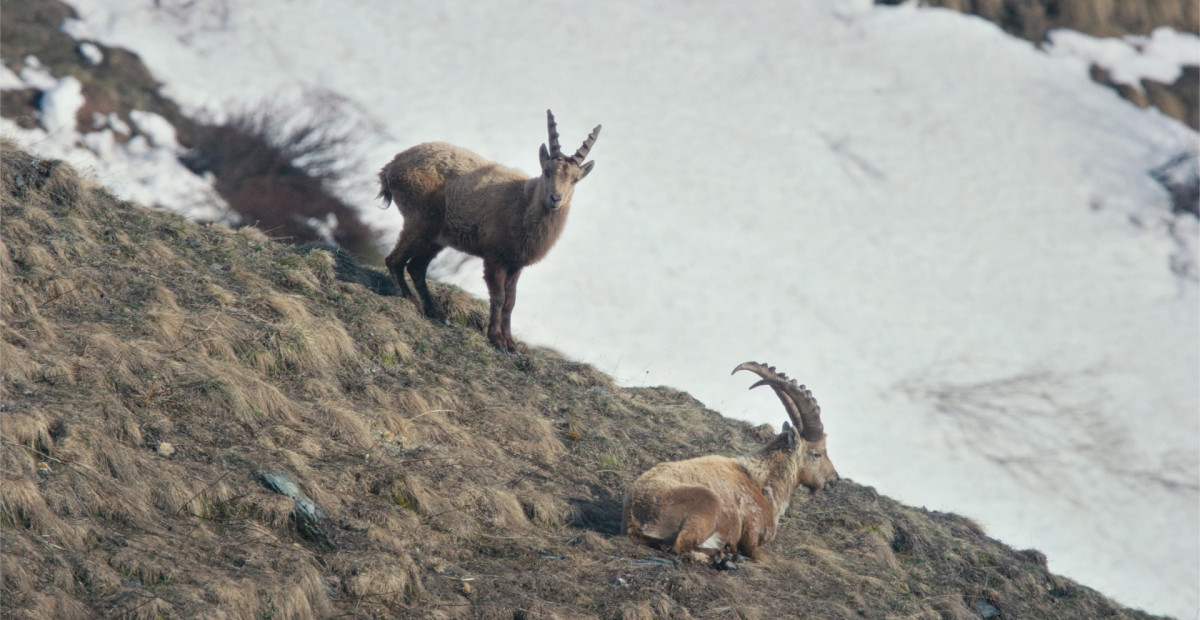 Film still from the film "A Flower of Mine"
Film still from the film "A Flower of Mine"
While climate change amplifies nature’s destructive force, we must not forget its healing power and life-giving energy. In A Flower of Mine, everything begins with a drought in Estoul, a mountain village 1,700 meters above sea level. Rather than a film about saving the mountains, it’s about how the mountains might save us. It's the directorial debut of Paolo Cognetti, following the success of the adaptation of his novel The Eight Mountains. The film depicts people living far from the noise of the valleys, around the vast Monte Rosa.
Another cinematic portrait of nature’s abundance is Ellis Park (dir. Justin Kurzel). Warren Ellis—legendary Australian violinist and longtime collaborator of Nick Cave—has built a parallel life beyond music, devoted to protecting a wildlife reserve in the Sumatran forest that now bears his name.
Life and Other Problems (dir. Max Kestner) takes a philosophical turn. The film begins with the controversial euthanization of a giraffe named Marius in the Copenhagen Zoo, sparking global outrage. What is consciousness? Where does love come from? The director asks bold, provocative questions, searching for answers in the broadest context.
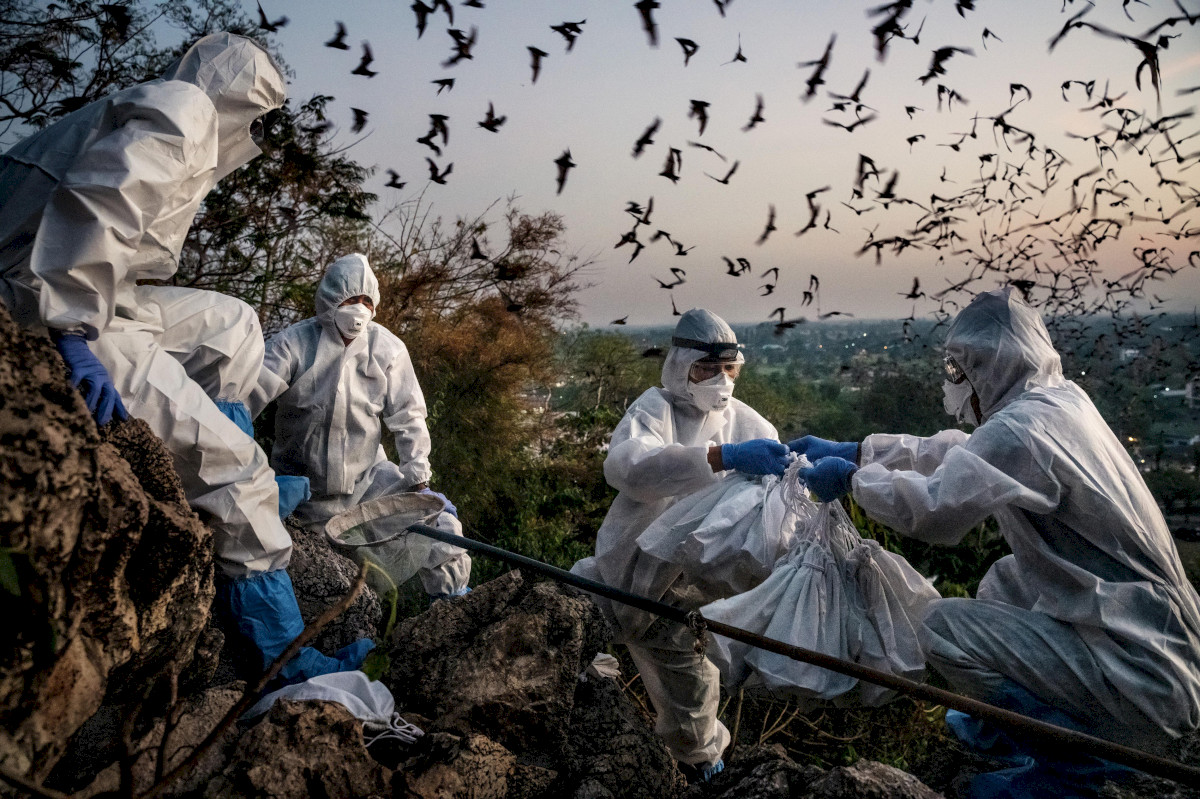 Film still from the film "Blame"
Film still from the film "Blame"
The competition also includes powerful stories of environmental politics and resistance to systemic violence against nature. Alongside Yintah, films like Green Is the New Red, Farming the Revolution, and Blame deepen the conversation.
Green Is the New Red (dir. Anne Ricalde Miranda) asks why major landowners and corporations in South America get away with murdering activists defending farmers. The film draws chilling parallels to CIA-backed operations in 1970s Chile, Paraguay, and Argentina.
Farming the Revolution (dir. Nishtha Jain) chronicles a young farmer from Punjab who joined half a million protestors against new farming laws. Their solidarity led to a landmark victory and the repeal of the legislation.
Finally, Blame (dir. Christian Frei) is a visually striking exploration of science in a world darkened by propaganda and political agendas. After years spent researching bats in remote caves, three scientists find themselves scapegoated at the heart of a global storm. The film exposes how fear and myth—divorced from facts—fuel destructive political narratives.
The 22nd MDAG will take place from May 9 to 18, 2025, in cinemas in Warsaw, Wrocław, Gdynia, Poznań, Katowice, Bydgoszcz, and Łódź, and from May 20 to June 2 online at mdag.pl! The festival’s title sponsor is Bank Millennium. (https://www.bankmillennium.pl/).



